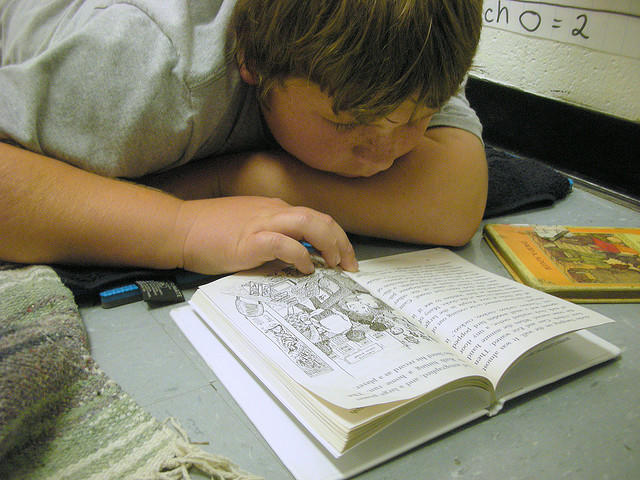
Section Branding
Header Content
Georgia Today: Lawmakers examine tax breaks; Child literacy; Herschel Walker goes back to school
Primary Content
On the Thursday, June 15 edition of Georgia Today: Lawmakers are taking another look at billions of dollars in state tax breaks; teachers and school leaders try a new strategy for helping child literacy; and failed Republican U.S. Senate candidate Herschel Walker is going back to school.

Peter Biello: Welcome to the Georgia Today podcast from GPB News. Today is Thursday, June 15th. I'm Peter Biello. On today's episode, lawmakers are taking another look at billions of dollars in state tax breaks. Teachers and school leaders move away from a teaching strategy that is failing to help kids learn to read, and failed Republican U.S. Senate candidate Herschel Walker is going back to school. These stories and more are coming up on this edition of Georgia Today.
Story 1:
Peter Biello: Yesterday, state lawmakers began reevaluating billions of dollars in state tax breaks, including the popular film tax credits. GPB's Donna Lowry reports.
Donna Lowry: Georgia offers more than 100 tax incentives for everything from housing to new businesses. $1.5 billion in tax credits helped lure the electric vehicle company Rivian. The General Assembly's Joint Tax Credit Review panel is looking closely at all of them and whether to make changes. The film industry credit gets the most attention from critics, even though it infuses more than $4.4 billion into most of Georgia's counties. Georgia Economic development Officer Andrew Cappezutto:
Andrew Capezzuto: 74,000 jobs and over $23 billion of investment. The bottom line is that the economic activity in Georgia is happening everywhere and a lot of it is happening outside of metro Atlanta.
Donna Lowry: The committee may recommend changes to tax credits when lawmakers reconvene in January. Donna Lowry for GPB News.

Story 2:
Peter Biello: Georgia's Department of Human Services failed to pay food assistance benefits on time for 46,000 residents last month. That's about two-thirds of the state's food assistance recipients. Food pantry operators say the delays are nothing new and contribute to food insecurity in needy families. Mary Jane Couch of Second Harvest of Coastal Georgia says her organization typically sees the effects when families run out of benefits.
Mary Jane Couch: Delaying it, they can't plan as well. And so that's where a lot of the emergency food assistance comes into it. And you see our pantries get busier.
Peter Biello: An agency spokesperson blames the delays on federal rules and requirements and says officials are working as quickly as possible to process applications and renewals.
Story 3:
Peter Biello: The company that insures law enforcement in Southeast Georgia's Camden County is dropping the county's coverage after repeated instances of misbehavior. County taxpayers now will have to swallow the cost of premiums that likely will double from the current rate of $700,000 a year. The Camden County Sheriff's Office has faced scrutiny over the past year for brutal use of force on detainees in the county jail and claims of discriminatory and violent traffic stops.

Story 4:
Peter Biello: The state House and Senate adjourned this year without reaching an agreement on how to make it easier to build hospitals in rural counties. Now, both chambers will consider how Georgia might move forward on so-called certificate of need reform. GPB Sophie Gratis has more on the Senate Study Committee that began work this week.
Sofi Gratas: Under current law, most health care facilities have to prove they're not duplicating services in an area before being allowed to open or expand. Whether or not the certificate of need law creates better or worse access to care has become a hotly contested issue. Research presented at the meeting on Tuesday found vague results to that question. But Republican Sen. Ben Watson says that should not rule out reform.
Ben Watson: I mean, listen, if is not showing unequivocal results for keeping more regulation, then it's hard to justify a monopoly and being anti-competitive.
Sofi Gratas: Meanwhile, other lawmakers argue current law protects the state from an oversaturation of services that focus on profit. 12 states have repealed CON laws so far. For GPB News, I'm Sofi Gratas.

Story 5:
Peter Biello: Research has shown that if kids aren't reading well by the third grade, they're likely to struggle in school. Now, there's good reason to believe that one of the most popular methods of teaching beginning readers, called balanced literacy, has left many children without the basic skills they need to get ahead. What's followed is called the science of reading movement. As GPB's Graham Blankenship explains, in Georgia, that's inspired new laws aimed at better literacy.
Quantesha Pittman: All right, How many sounds do you get?
Children: Four.
Grant Blankenship: It's summer! But at John Lewis Elementary School in Bibb County, Quantesha Pittman is teaching third graders to build words.
Quantesha Pittman: And then right after that "shhh" sound, what do you hear?
Children: ruhh-ubb.
Quantesha Pittman: Good job. What's the word again?
Children: Shrub.
Quantesha Pittman: Now let's talk about that first sound we heard. What was that first sound?
Grant Blankenship: The kids got to "shrub" after learning the code of sounds, the phonemes, that build it. Going forward, 30 or 45 minutes of every single reading class in Bibb County will be spent building this phonemic awareness, a core skill in what's called structured literacy or, broadly, the science of reading. When Missy Purcell taught reading in Georgia's largest school district in Gwinnett County several years ago, it was not like this. She used "balanced literacy" like most schools in the country.
Missy Purcell: I'll be the first to admit I was a balance literacy fangirl.
Grant Blankenship: She's not alone. For three decades, a balanced literacy publishing industry worth billions has been centered around a professor from Teachers College Columbia in New York named Lucy Calkins. The idea was to make reading fun by giving students special books where pictures are tied to text.
Missy Purcell: We call them patterned books. And so it's like, you know, the fence is purple, the door is purple, the swing is purple.
Grant Blankenship: So much purple. And so this word I've never seen before? Don't sound it out. Look at the picture and guess: It means purple? This is called cueing. It's how Purcell's own son was taught.
Missy Purcell: But he never could read the last page, which didn't follow the pattern.
Grant Blankenship: Without a purple cue, he was lost. Purcell says when she saw that she knew balanced literacy hadn't taught her son to read. After he was diagnosed with dyslexia, he was taught structured literacy, and Purcell saw it worked.
Missy Purcell: But also it just began to dawn on me the number of kids who were sitting in classrooms —
Grant Blankenship: Not just kids with dyslexia; lots of kids weren't learning to read with balanced literacy.
Missy Purcell: Whose parents just hadn't stumbled into some random group of knowledgeable people, which is what happened to me.
Grant Blankenship: In the four years that followed. Purcell joined a community who would lobby for science of reading laws. Georgia legislators heard the lobbyists and saw statistics showing something like 40% of Georgia third graders read below grade level. Two state laws mandating science of reading instruction for students and training for teachers passed this year. Ellen Register teaches in Grady County on the Florida border, where teachers are in Year 2 of Science of Reading training. She says she was shocked the material was new to her.
Ellen Register: Because I have a master's degree. I have a reading endorsement. And I didn't even know all of this.
Grant Blankenship: And after a year of teaching like this, she's convinced.
Ellen Register: I can see it working. I can see it being beneficial and helping the light bulb click for the kids.
Grant Blankenship: Not everyone is convinced this works — or, for people like Lisa Morgan, that it's even new.
Lisa Morgan: Yes, we all need some phonics. Every child needs to learn phonics.
Grant Blankenship: Morgan teaches kindergarten and is the president of the Georgia Association of Educators. She worries the focus on the science of reading goes too far — takes out the fun.
Lisa Morgan: Teaching children to read is not just a science, it's also an art. I want them to want to read and to love to read.
Grant Blankenship: Lobbyist, teacher and mom Missy Purcell says that's the balanced literacy dream. And yeah:
Missy Purcell: That would be great. But really, what's going to get you to love something is that you're successful at it.
Grant Blankenship: And she says in reading, success follows explicit structured work. Mississippi made this change years ago. People called the jump in reading proficiency there the Mississippi Miracle. Across the country, school districts are also making the change. Georgia plans to complete its rollout of science of reading standards by 2025. For GPB News, I'm Grant Blankenship in Macon.

Story 6:
Peter Biello: Former football star and failed Republican U.S. Senate candidate Herschel Walker is going back to school. A University of Georgia spokesperson confirms Walker is taking summer classes. The Trump-endorsed candidate has kept a low profile since losing in a campaign dogged by missteps and falsehoods. One of those falsehoods was a claim that he graduated from UGA when, in fact, he left to play professional football. A statement from the university provides no details on his current enrollment.
Story 7:
Peter Biello: A Georgia Tech student and aspiring engineer came in fourth on the hit CBS show Survivor. GPB's Sarah Kallis has more on Carson Garrett.
Sarah Callis: Garrett says he comes from the, quote, "biggest community of Survivor fans" in his home city of Rome, Georgia. He credits his community and problem-solving skills for supporting him throughout the competition.
Carson Garrett: I was just really proud of myself for, you know, putting myself as an interviewer on this game built on social relationships and excelling. And so it was pretty intimidating at first. But as I got into the groove, I was I felt very comfortable.
Sarah Callis: Garrett gained 30 pounds in preparation for the show and said he's adjusted to his normal life after the game. He is entering his fourth year as an engineering student and is interning at NASA in Houston. For GPB News, I'm Sarah Kallis.
Peter Biello: Thank you so much for listening to Georgia Today. That's it. But we've got more news coming your way tomorrow. Please do subscribe at GPB.org. And if you want to learn more about any of these stories, visit our website GPB.org/news. Now, if you want to learn more about the science of reading as described in Grant Blankenship's story on the podcast today, check out the podcast from APM called Sold a Story: How Teaching Kids to Read Went So Wrong. It's a multi-part podcast, really worth your time; highly recommend it. If you've got feedback for Georgia Today, please do let us know by email. The address is GeorgiaToday@GPB.org. I'm Peter Biello. Thanks again for listening. We'll see you tomorrow.
___
For more on these stories and more go to GPB.org/news.
Also, GPB's Georgia Today newsletter hits your inbox on Tuesdays, Wednesdays and Thursdays with top stories from around the state featuring news, politics and more. Subscribe here.




